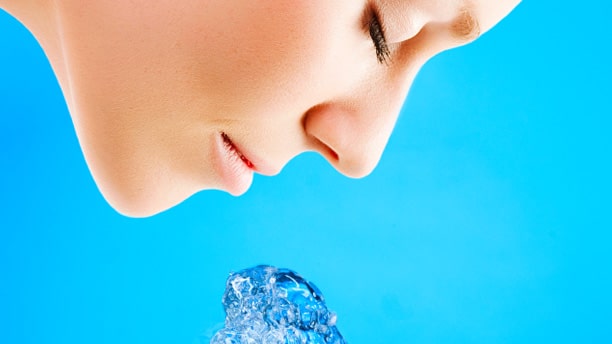Many of us suffer from low energy levels or fatigue, brain fog, lethargy, dry skin, and/or muscle cramps on a regular basis. If you are one of these people, and research shows that the number seems to be increasing, you may simply be dehydrated. It sounds too simple, but even mild dehydration can often be the culprit behind many or all of these common conditions. Even high blood pressure can be caused by dehydration.
Our bodies are supposed to contain lots of water; our cells, blood vessels, organs and tissue all thrive on it and suffer without enough of it. In fact, 75% of our bodies consist of water. Without this precious water content our bodies rebel in the form of the above conditions and worse. Many of these conditions can lead to more serious disease states by stressing our internal organs. The medications we often take to try to combat the conditions can also have disastrous effects on our organs, causing even more problems.
Our bodies lose water very easily. Even simple, automatic actions like breathing cause us to lose water. When we exercise, are sick with vomiting and/or a fever, urinate or have a bowel movement our bodies lose water even faster. By the time we begin to feel thirsty, we are well on our way to being dehydrated. Do not wait until you feel thirsty to start drinking water; carry a water bottle around with you all day to sip from, and make sure you fill it up often!
If you suffer from any or all of the above symptoms, try a simple experiment by increasing your daily intake of water for a week to see how you feel. Researchers say an average sized adult should consume six to eight glasses of water per day. Spread it out over your day, starting with a large glass as soon as you wake up. Eating more fresh fruit and vegetables will also increase your water intake, as they both contain large percentages of water. If you find tap water boring and tasteless, try adding a bit of unsweetened juice (lemon is my favorite) to each glass to add some flavor. Another idea is to add some frozen fruit (unsweetened) to a pitcher of water and keep the pitcher in the refrigerator to fill your water glass or bottle with.
To help prevent dehydration, you can limit your consumption of alcohol and caffeinated drinks like coffee and soda as they are known to be dehydrating even though they seem to be thirst quenching. If you do drink these items, be sure to add extra glasses of water to your daily amount. Switch to herbal tea instead of coffee or caffeinated tea; an increasingly large number of hydrating flavors are available in most grocery stores.
Start your own experiment today and sip your way to better health…


